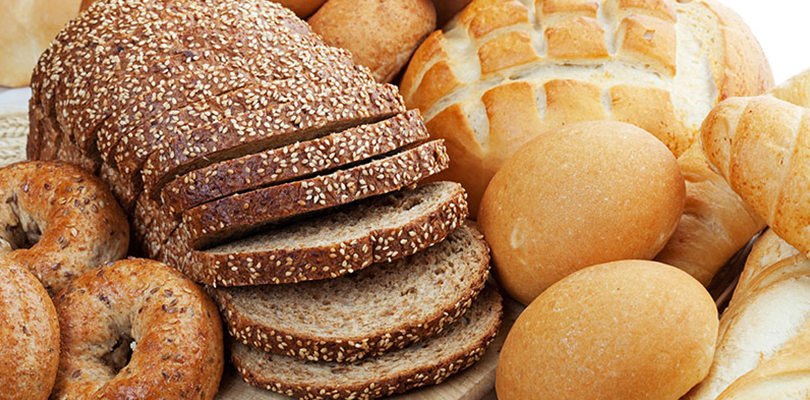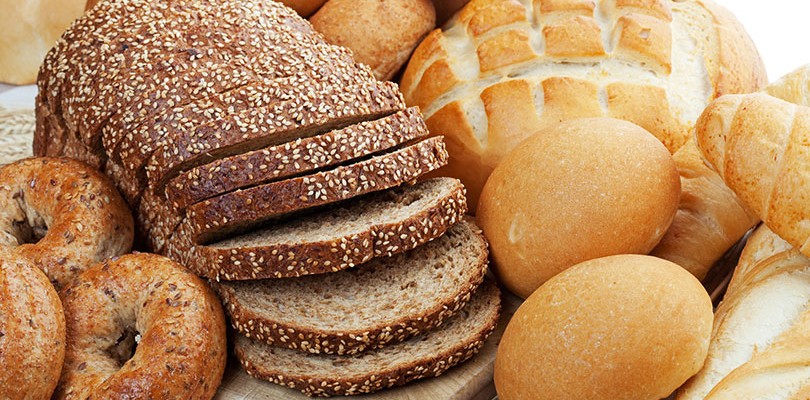
Photo Credit: Songbird839 / iStockPhoto.com
Healthy Foods You Should be Eating
Eating healthy can help you feel more energetic, stay well, and live longer.
Let’s look at five of the best kinds of healthy foods which you can add to your diet.
1. Whole Grains
Eating whole grains is better for you than eating refined ones because whole grains are complete. Every part of a grain has nutritional value, but refined flours and grains have had parts removed by chemical and physical processing methods. This results in a loss of nutrients.
Artificial nutrients then need to be added back into refined flour. When you see labels on packages that say “enriched,” the product contains a grain that has been stripped of its natural nutrients and then had chemically-made vitamins put in. However, many of the nutrients are not replaced.
Whole grains are inexpensive, easy to prepare, and are great sources of a wide array of nutrients including proteins, minerals and B vitamins. Whole wheat, barley, oats, brown rice, farro and kasha are just a few of the many whole grains available.
One of the most important nutrients lost, and is not replaced, when grains are processed is fiber. Fiber is a valuable nutrient for many reasons. Fiber…
- Increases your metabolic rate and helps you feel full which helps to maintain a healthy weight.
- It improves bowel function, thereby reducing the risk of constipation and colon cancer.
- It helps to deactivate and remove toxins from your body.
- It prevents the absorption of certain fats. Fiber helps to balance blood sugar levels and reduces levels of unhealthy, LDL, cholesterol.
Aim to consume 35 grams of fiber each day. In addition to whole grains, fruits and vegetables are good sources of fiber. One half of a cup of bran or one cup of dried legumes contains 10 grams of fiber.
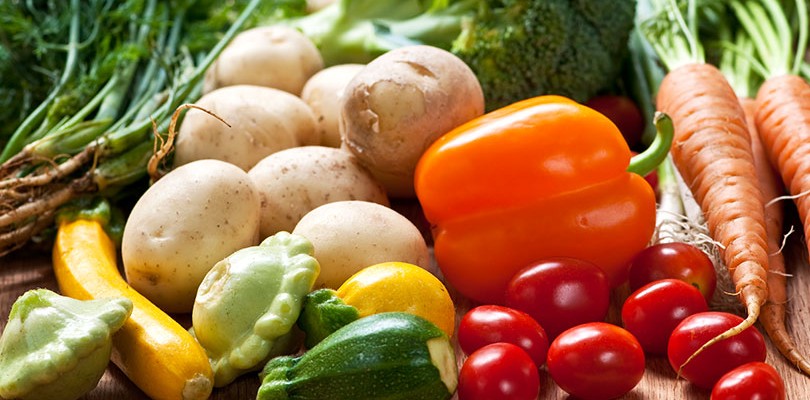
Photo Credit: Elenathewise / iStockPhoto.com
2. Fresh Organic, Local Produce
Fresh, local, organic produce is not only good for your body — it benefits the planet, too. Local food is fresher and more likely to be picked when fully ripe. This means that in addition to great taste, your food will retain more enzymes, vitamins and minerals than foods that are harvested before they are fully ripe and transported over long distances. Apples, onions and potatoes available in regular grocery stores are often more than six months old by the time they get to your table.
The best local produce comes from your own garden. If space is a problem, consider growing vegetables in containers. Many types of vegetables can be grown in small spaces. Alternatively you can check out your local farmers’ market.
Eating locally grown, seasonal fruits and vegetables also affords you with opportunities to reduce your carbon footprint on the earth. And while organic local foods may initially seem more expensive to purchase, you will actually save money on health care costs in the future.
Many foods grown commercially are genetically altered or heavily sprayed with pesticides, fertilizers and other toxins. These toxins accumulate in your tissues. They stress the entire body, however they are particularly harmful to your liver, kidneys and skin.
Fresh fruits and vegetables contain powerful antioxidants, such as vitamins C and A. These compounds help to rid the body of free radicals, which promote aging and contribute to the development of cardiovascular illnesses, cancer and many other illnesses. Nutrients in fruits and vegetables help to stabilize and elevate moods.
Think how much better a fresh peach, tomato or ear of corn tastes when compared with the commercial varieties. You can enjoy great taste and know that you are doing your part to stay healthy and take care of the earth by eating local, fresh, organic, seasonal produce.
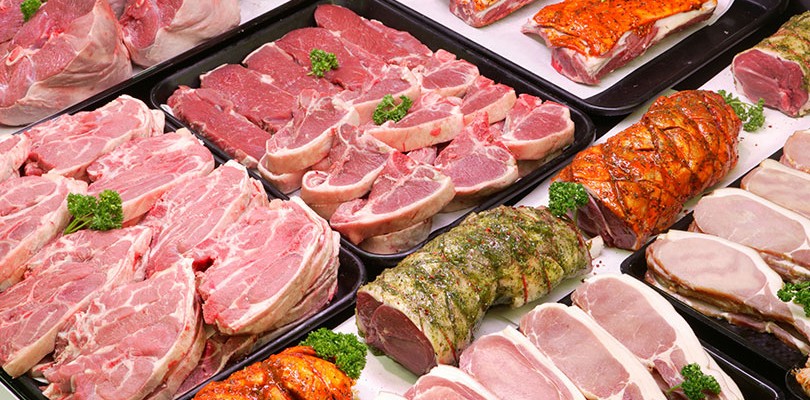
Photo Credit: camij / iStockPhoto.com
3. Organic Meats
While a vegetarian diet is an excellent choice, most people still prefer to consume meat and animal products. If you choose to eat meat, either purchase meat that comes from organically raised grass fed animals or harvest it yourself. Wild meats, such as venison and wild turkey, are very low in fat and high in protein. Organic meat farmers are not allowed to use hormones or antibiotics, while non-organic meats often have traces of these powerful chemicals in them.
Meat from grass-fed animals is lower in fat than the meat that comes from animals kept on factory farms, and beef from grass fed cows often contains no more fat than a boneless chicken breast. Additionally, researchers have found that eating meat from grass fed animals reduces the risk of contracting food borne illnesses.
Meats from organic, grass fed, or wild animals is more nutritious than other meats. The meats contain higher amounts of healthy omega 3 fatty acids, vitamins C and E, and beta carotene.
If you have a loved one who has seizures, it's best to learn what a seizure is, what the causes of seizures are, and what to do when a seizure occurs.
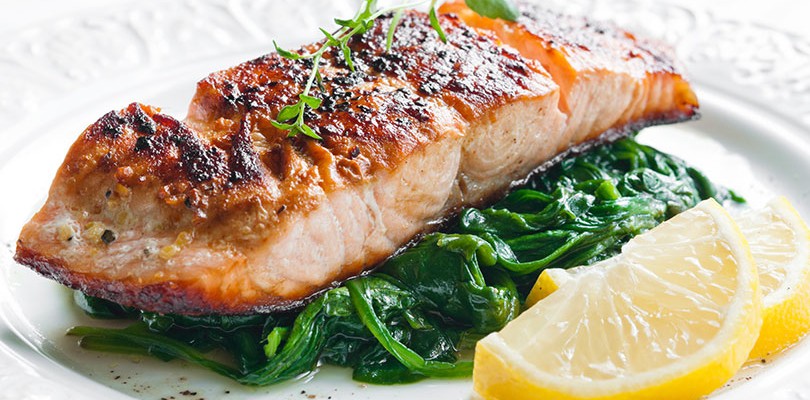
Photo Credit: Rafal Stachura / iStockPhoto.com
4. Healthy Fatty Acids
Omega fatty acids are naturally occurring, healthy acids the body needs but cannot manufacture — they have to be obtained from foods or supplements.
Omega fatty acids lower unhealthy cholesterol levels and improve the ratio of “good” cholesterol to “bad” cholesterol. They reduce inflammation and lower the risk of strokes and heart attacks.
Long-term studies of Yup’ik Eskimos in Alaska, who consume diets very high in essential fatty acids, reveal that rates of heart attacks, psoriasis, asthma, diabetes and multiple sclerosis are extremely low among that population. Research confirms that omega 3 fatty acids benefit all of those conditions.
Omega 3 fatty acids protect the liver. ALA, EPA, and DHA are essential fatty acids that reduce anxiety and promote good mental health.
Omega 6 fatty acids are abundant in many foods and do not need to be supplemented. Omega 7 fatty acid is found in macadamia nuts. It is especially beneficial for cardiovascular wellness.
Essential fatty acids may be obtained from cold, deep water, oily fish. Farm raised fish do not contain equal benefits. Mackerel, halibut, trout, sardines, salmon and bluefish are excellent sources of essential fatty acids. Canola oil, flax, and hempseeds are rich sources too.
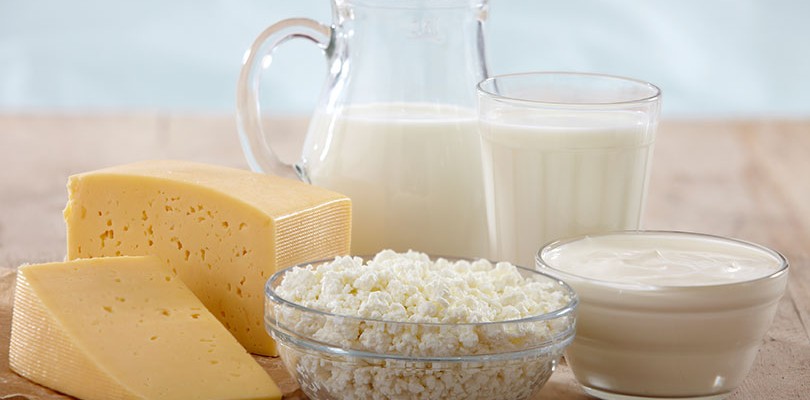
Photo Credit: Magone / iStockPhoto.com
5. Organic Dairy Products
Products from dairy animals raised organically do not contain antibiotics and artificial hormones. Antibiotic resistance is a major heath concern these days, and part of the reason is because antibiotics are commonly used in the animals that our meat and dairy products come from. Antibiotics are routinely added to poultry feed and food for dairy and meat animals.
Commercial, non-organic dairy animals are routinely injected with hormones that increase their milk production. As a result these hormones, which can cause disruption of human hormone cycles, are found in the products produced from their milk. This may result in premature puberty and hormone disruption-related illnesses, including breast cancer.
Pseudobulbar affect is an expression disorder than cause cause excessive laughing or crying. Learn more about its causes and symptoms here.
